6 Health Food Imposters to Kick Out of the Kitchen—Plus, What to Eat Instead
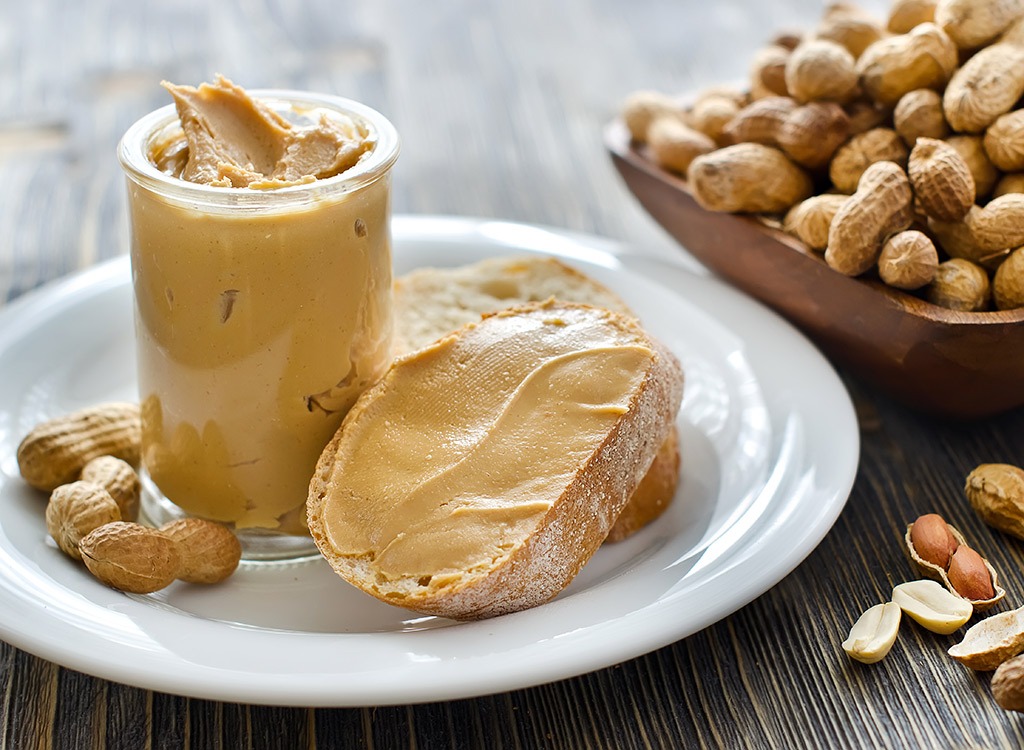
And why shouldn't you? You're loading up your cart with the best weight loss foods that may also greatly improve your overall health—at least you think you are.
Wait, what?
As Americans have become more health conscious, food manufacturers have found new and creative ways to game the system and pass off their not-so-healthy products as nutritious. And we've got to give them kudos—they're really quite good at it! It's nearly impossible these days to identify a truly healthy food. Don't be discouraged; all hope is not lost! Click through the slides to discover six health food imposters that may have found their way into your shopping cart and kitchen. Plus, easy-to-find swaps for each.
EAT THIS!
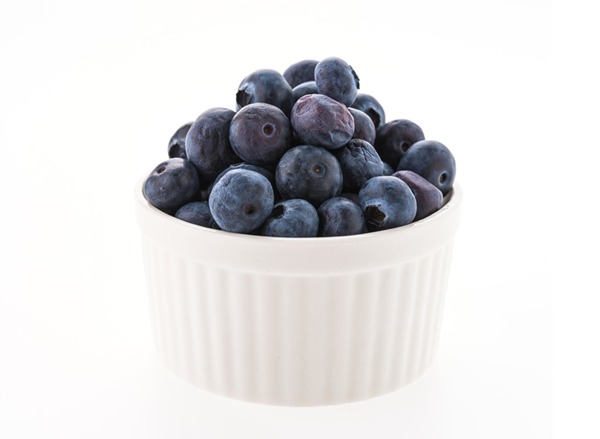
Fresh or Freeze Dried Blueberries, 0.5 Cup
| Calories | 40 |
| Fat | less than 0.25 g |
| Fiber | 2 g |
| Sugar | 8 g |
| Sodium | 1 mg |
NOT THAT!
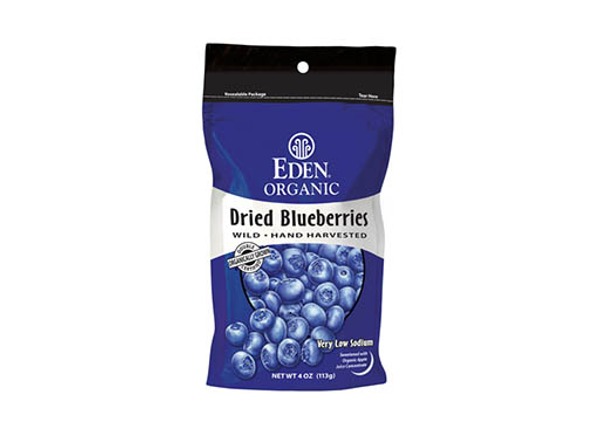
Eden Organic Dried Blueberries, 0.5 cup
| Calories | 280 |
| Fat | 2 g |
| Fiber | 10 g |
| Sugar | 42 g |
| Sodium | 29 mg |
Dried Fruit
You may already know that dried fruit isn't as healthy as the fresh variety, but you may not realize just how many extra calories those packaged snacks serve up. Dried, sweetened blueberries, for example, have more than six times the amount of calories as their fresh and freeze dried counterparts. Plus, they're loaded with a whopping 42 grams of sugar. Yikes! If you're hoping to lose or maintain your weight, all those additional calories and globs of sugar mean extra time sprinting and squatting to burn them off. Still not convinced you should make the switch? Consider this: Harvard researchers recently found that eating too much added sugar increases the risk of dying of heart disease, even in those who are not overweight. Opt for fresh or freeze dried blueberries to keep your heart healthy and the scale sitting steady.
EAT THIS
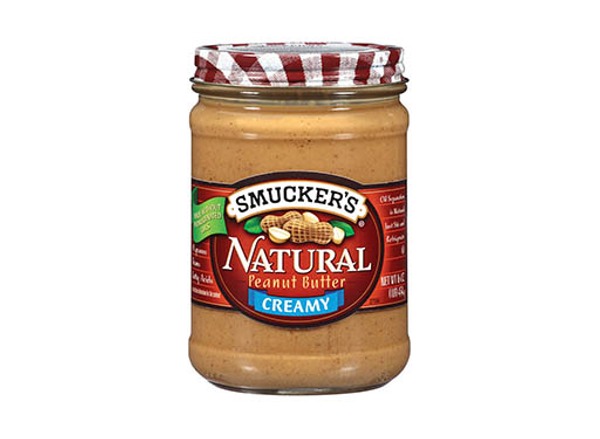
Smucker's Natural Peanut Butter, 2 tablespoons
| Calories | 210 |
| Fat | 16 g |
| Saturated Fat | 2.5 g |
| Sodium | 105 mg |
| Sugar | 1 g |
NOT THAT!
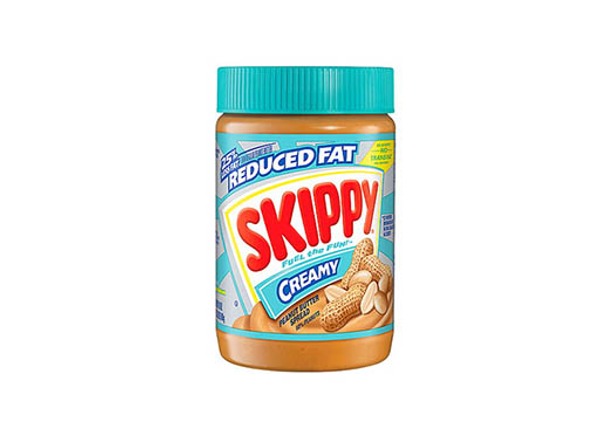
SKIPPY® Reduced Fat Peanut Butter, 2 tablespoons
| Calories | 180 |
| Fat | 12 g |
| Saturated Fat | 2 g |
| Sodium | 170 mg |
| Sugar | 4 g |
Low-Fat Peanut Butter
"Fuel the fun" may be Skippy's slogan, but their ingredients are more scary than energizing. When makers removed the naturally-occurring, healthy fats from peanuts, they replaced them with sugar and additives like corn syrup and hydrogenated vegetable oil, which researchers found increase heart disease risk by a whopping 23 percent. Stick with Smucker's Natural variety—made with just peanuts and a touch of salt—to get all the heart-healthy fats responsible for PB's rave reviews from nutritionists and dietitians.
EAT THIS!
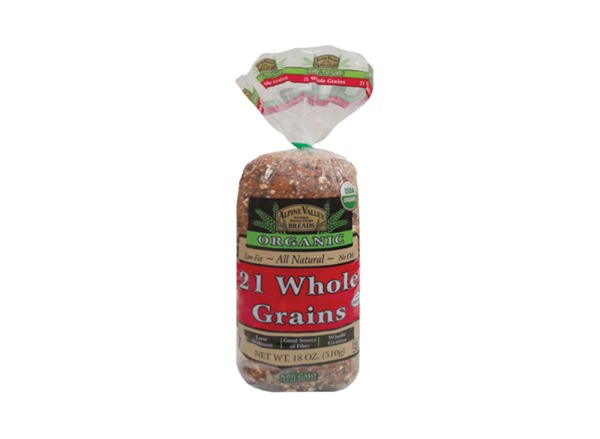
Alpine Valley, 1 slice
| Calories | 80 |
| Fat | 0.5 g |
| Sodium | 70 mg |
| Fiber | 4 g |
| Sugar | 3 g |
NOT THAT!
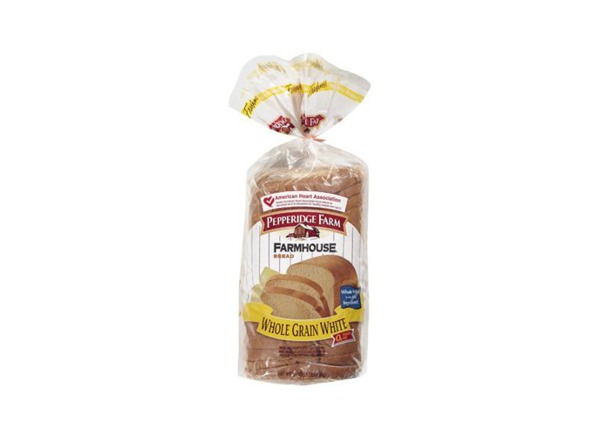
Pepperidge Farm, 1 slice
| Calories | 110 |
| Fat | 2 g |
| Sodium | 160 mg |
| Fiber | 3 g |
| Sugar | 3 g |
Bread "Made with" Whole Grains
If you think choosing whole grains ensures a healthy pick, you may want to take a closer look at the nutrition label. According to a Harvard School of Public Health study, many products displaying the yellow Whole Grain Stamp have more sugar and calories than whole grain foods not bearing the logo. So what should you look for in a bread? The ideal variety should list whole grain as the first ingredient and be free of high fructose corn syrup. Pepperidge Farms' variety is loaded with high fructose corn syrup while Alpine Valley's bread is free of the sweetener, making it an "Eat This."
EAT THIS!
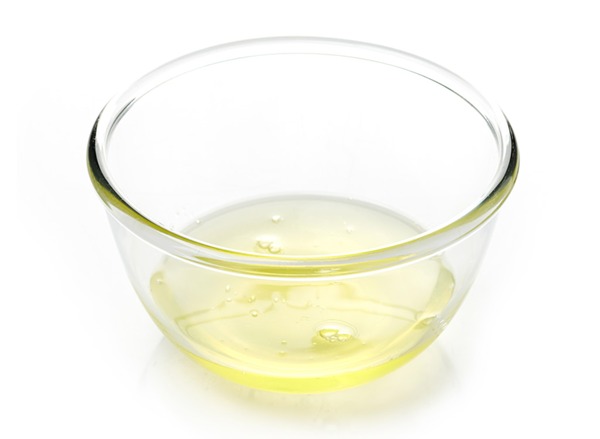
Fresh Egg White, from 1 egg
| Calories | 17 |
| Fat | 0.1 g |
| Sodium | 55 mg |
| Cholesterol | 0 mg |
| Protein | 3.6 g |
NOT THAT!
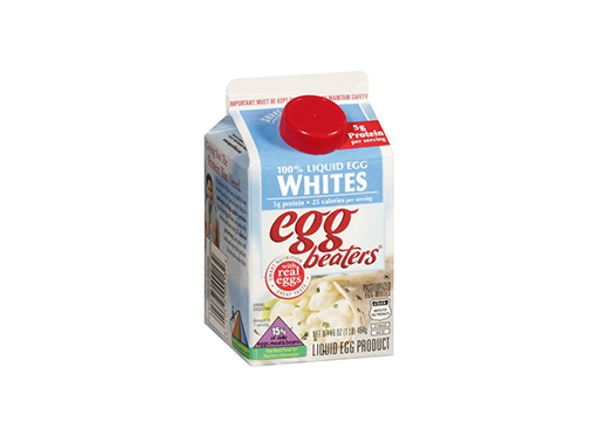
Egg Beaters® 100% Egg Whites, 3 tablespoons
| Calories | 25 |
| Fat | 0 g |
| Sodium | 75 mg |
| Cholesterol | 0 g |
| Protein | 5 g |
Processed Egg Whites
The whites from hen-laid eggs are good sources of protein and vitamin A. The eggs used to make Egg Beaters are also a solid source of muscle-building protein, but somewhere between processing and packaging, they lose their vitamin A. It gets worse. Also lurking in the container is xanthan gum, a thickener and stabilizing agent. Yuck! The only thing we want to find in our eggs is some sautéed veggies and spices. Skip the Beaters and stick with whole, natural eggs, even if you pass on the yolk.
DRINK THIS!
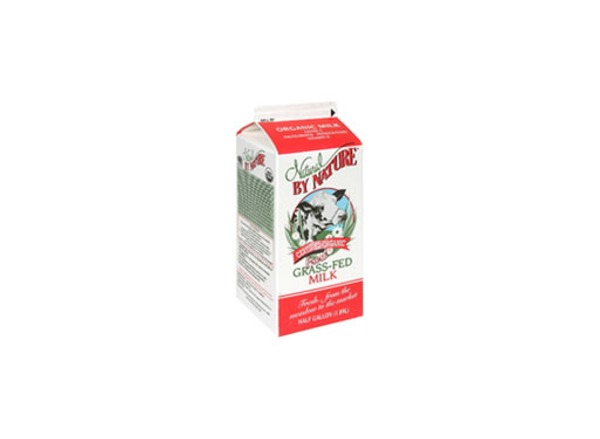
Natural by Nature Organic 1% Milk, 8 fl oz
| Calories | 110 |
| Fat | 2.5 g |
| Sugar | 12 g |
NOT THAT!
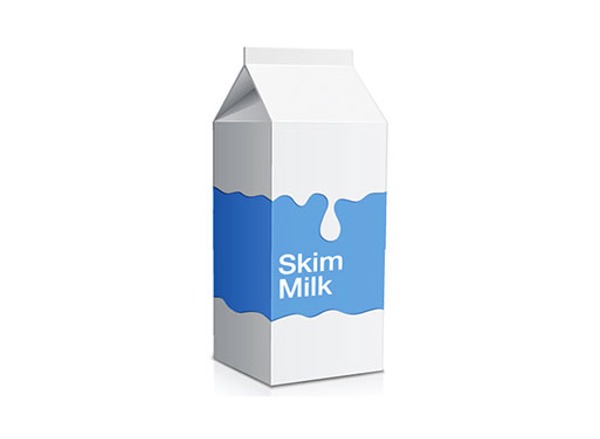
Conventional Skim Milk, 8 fl oz
| Calories | 102 |
| Fat | 2.37 g |
| Sugar | 12.69 g |
Skim Milk
While skim milk may seem like the healthiest option on dairy aisle shelves, you're missing out on important fat-soluble vitamins if you don't opt for at least 1%. To get the most health benefits out of your milk look for organic and 100% grass fed varieties that have more omega-3 fatty acids and two to five times more CLA (conjugated linoleic acid) than their conventional counterparts. Although you may not have heard of CLAs before, they're vital to optimal health; they boost immunity, improve bone mass and even reduce body fat—gotta love that!.
EAT THIS!
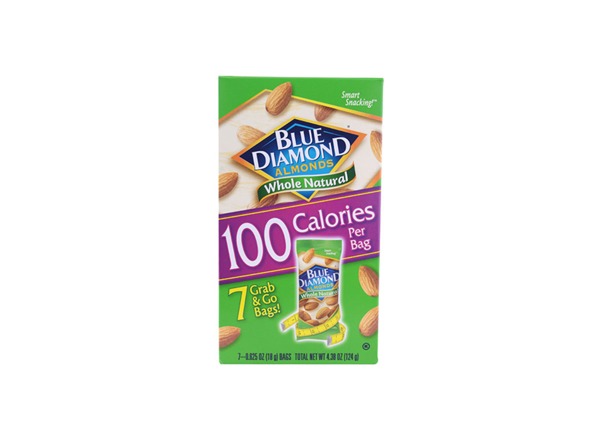
Blue Diamond Almonds, per 100-calorie pack
| Calories | 100 |
| Fat | 9 g |
| Fiber | 2 g |
| Sugar | 1 g |
| Protein | 4 g |
NOT THAT!
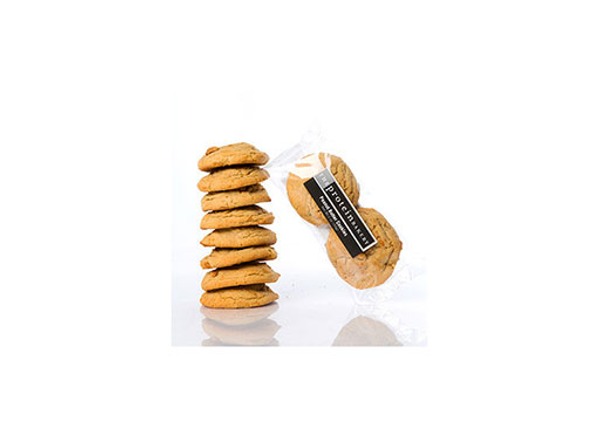
The Protein Bakery Cookies, 2 peanut butter cookies
| Calories | 280 |
| Fat | 18 g |
| Fiber | 2 g |
| Sugar | 16 g |
| Protein | 12 g |
Protein-Packed Processed Snacks
Snacks naturally rich in protein—like string cheese, nuts and Greek yogurt—are satiating and can help build and maintain lean muscle mass that fuels weight loss. Processed foods that add the nutrient into their packages, however, typically don't have the same effect. These protein-packed peanut butter cookies, for example, are a good source of whey protein, but are also loaded with artery-clogging butter. If you want a cookie, just eat a cookie (in moderation, of course). Otherwise, stick with the almonds. If you're particularly hungry or looking for more than 4 grams of muscle-building protein, you could even eat two of the 100-calorie packs without taking in as much sugar or calories as you would eating the cookies.








